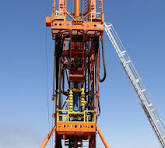Description
The oil and gas industry is a cornerstone of Nigeria’s economy, contributing significantly to its GDP and government revenues. As one of the leading oil-producing nations in Africa, Nigeria continuously seeks innovative technologies and efficient methods to maximize hydrocarbon recovery while minimizing operational risks.
Hydraulic Workover Units (HWUs) have emerged as a game-changing technology in this sector, offering cost-effective and safe solutions for well intervention, workover, and completion activities.
Hydraulic Workover Units are versatile, compact, and modular rigs designed for well intervention and workover operations. Unlike conventional rigs, HWUs use hydraulic systems to provide the required force to insert or retrieve tubing, casing, or completion equipment. This makes them ideal for operations in challenging environments, including offshore platforms, swampy terrains, and marginal fields.
HWUs are particularly valued for their ability to:
Operate in limited space: Their compact design allows them to be deployed on platforms with restricted space.
Enhance safety: Advanced automation and hydraulic controls reduce the need for manual handling, thereby minimizing risks.
Reduce costs: HWUs offer a cost-effective alternative to conventional rigs for many workover and intervention activities.
Improve efficiency: Their operational flexibility allows for faster mobilization and demobilization, reducing downtime.
The Nigerian oil and gas industry encompasses diverse operational environments, including onshore, offshore, and deepwater fields. HWUs have proven instrumental across these settings for a variety of applications:
Well Intervention: HWUs are used to perform maintenance activities such as replacing or repairing damaged tubing, removing obstructions, and conducting well stimulation. These interventions enhance production efficiency and extend the life of wells.
Workover Operations: Workovers involve major maintenance or remedial operations on a well. HWUs can be used to re-enter wells, replace completions, or restore well integrity, ensuring continued production without the need for more expensive rigs.
Plug and Abandonment (P&A): As Nigeria’s oilfields mature, the demand for safe and efficient P&A operations grows. HWUs provide a reliable solution for sealing wells, mitigating environmental risks.
Snubbing Operations: HWUs can conduct snubbing operations—inserting or removing pipe while the well remains under pressure—eliminating the need to kill the well and reducing formation damage.
Decommissioning: In offshore fields, HWUs are increasingly used to dismantle and decommission aging wells and platforms, ensuring compliance with environmental and regulatory standards.
The Nigerian Context: Opportunities for HWU Services
1. Growing Need for Marginal Field Development: Nigeria has an abundance of marginal fields, many of which have been awarded to indigenous operators under government licensing rounds. HWUs provide a cost-effective solution for developing these fields, which often require tailored and efficient well intervention techniques.
2. Aging Infrastructure: A significant portion of Nigeria’s oil and gas infrastructure is aging, necessitating regular maintenance and intervention to sustain production. HWUs’ ability to perform complex workovers and interventions makes them a vital tool for operators managing mature fields.
3. Offshore and Swamp Operations: Nigeria’s vast offshore and swamp terrains present logistical and operational challenges. HWUs’ portability and ability to operate in confined spaces make them ideal for these environments.
4. Regulatory Push for Environmental Compliance: The Nigerian government has implemented stringent regulations for well integrity and abandonment to minimize environmental risks. HWUs are well-suited to perform environmentally compliant P&A operations, presenting a growing market for service providers.
5. Cost Optimization Pressures: In a volatile oil price environment, operators are under constant pressure to reduce costs. HWUs offer a more economical alternative to conventional rigs, making them an attractive option for intervention and workover activities.
Despite the opportunities, service providers face several challenges in delivering HWU services in Nigeria:
1. High Capital Investment: The acquisition and maintenance of HWUs require significant upfront investment. For many indigenous companies, accessing the necessary capital remains a barrier.
2. Skilled Workforce Shortage: Operating HWUs requires specialized skills. Nigeria faces a shortage of adequately trained personnel, necessitating investments in capacity building and training programs.
3. Logistical Challenges: Transporting HWUs to remote or offshore locations in Nigeria can be complex and costly, compounded by inadequate infrastructure in some areas.
4. Regulatory Hurdles: Navigating Nigeria’s regulatory landscape can be challenging for service providers, particularly in obtaining permits and complying with local content requirements.
5. Competition: The HWU market in Nigeria is increasingly competitive, with both local and international players vying for contracts. Service providers must differentiate themselves through superior technology, reliability, and cost efficiency.
To thrive in Nigeria’s HWU market, service providers should consider the following strategies:
Invest in Local Content: Compliance with Nigeria’s Local Content Act is crucial. Building partnerships with local firms, hiring Nigerian personnel, and sourcing materials locally can enhance competitiveness and secure regulatory approval.
Focus on Training and Capacity Building: Establishing training programs to develop skilled HWU operators will address the talent gap and enhance service quality.
Leverage Technology: Adopting cutting-edge HWU technology and integrating digital solutions, such as remote monitoring and predictive maintenance, can improve operational efficiency and reduce costs.
Develop Strategic Alliances: Partnering with operators, other service providers, and financial institutions can help share risks and resources, ensuring smoother operations.
Enhance Operational Flexibility: Offering customizable HWU solutions tailored to the unique needs of Nigerian operators will improve market penetration.
The provision of Hydraulic Workover Unit services represents a significant growth opportunity in Nigeria’s oil and gas sector. HWUs’ versatility, cost-effectiveness, and safety benefits align well with the industry’s evolving demands, particularly in the context of marginal field development, aging infrastructure, and environmental compliance.
However, success in this domain requires addressing challenges such as high capital costs, skills shortages, and logistical hurdles. By investing in local content, workforce development, and advanced technology, service providers can position themselves as indispensable partners in Nigeria’s quest for sustainable and efficient hydrocarbon production.
As the industry continues to evolve, the role of HWUs is likely to expand, cementing their importance in ensuring the longevity and profitability of Nigeria’s oil and gas resources. For stakeholders willing to innovate and adapt, the HWU market offers a promising avenue for growth and impact in the country’s energy landscape.


Reviews
There are no reviews yet.